Lessons from My Grandfather: Rabbi Aryeh Levin's Legacy of Kindness
Marking 55 years since the passing of the revered Rabbi Aryeh Levin, his great-grandson Rabbi Aryeh Levin shares personal insights and reveals how his grandfather's spirit continues to guide his public role.
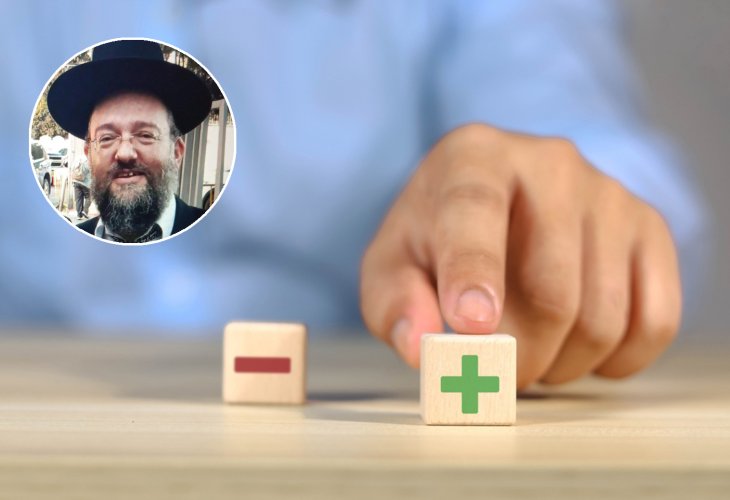 Inset: Rabbi Aryeh Levin's great-grandson (Background photo: shutterstock)
Inset: Rabbi Aryeh Levin's great-grandson (Background photo: shutterstock)Rabbi Aryeh Levin was one of Jerusalem's most iconic figures. Known as the "Jerusalem Tzadik," he walked through prisons and city streets, with his eternal smile lighting even the darkest nights. Simply called "Rabbi Aryeh," few knew the immense legacy of charity he left behind – dedicating countless days and nights to educating the children of Israel and unifying hearts with their Heavenly Father.
His great-grandson, Rabbi Aryeh Levin, distills his powerful personality into one notion: "Rabbi Aryeh Levin was likely an angel, because an ordinary person couldn't have achieved what he did. His dedication, unwavering purpose, and universal connection were beyond human."
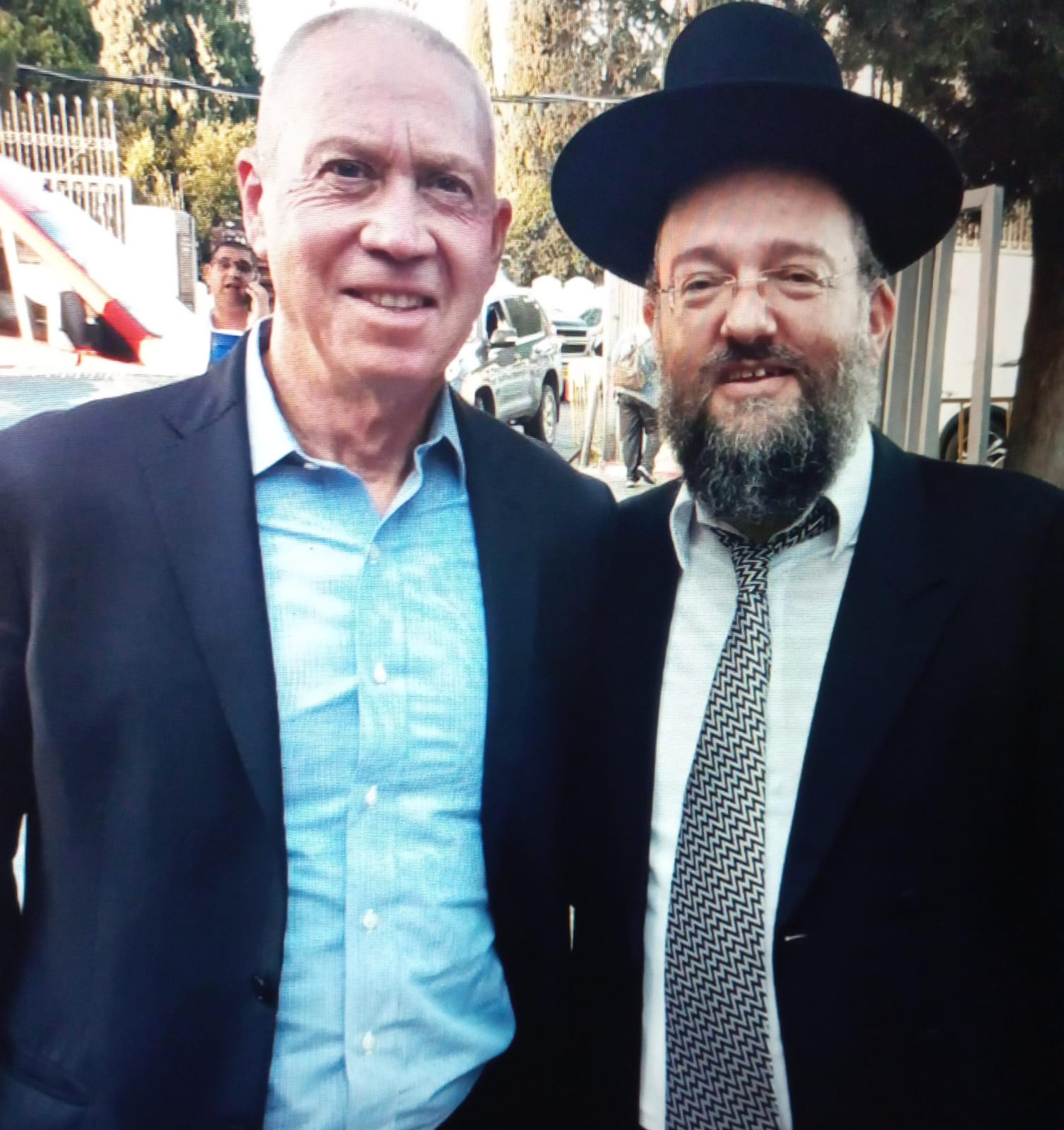
"There were times Rabbi Aryeh would host released prisoners in his home. In the morning, he'd find his silverware missing. It didn't trouble him; he'd continue to host people regardless. This, too, was an angelic nature."
"Let me share a story my cousin Rabbi Yitzchak Zilberstein told me," Rabbi Aryeh shares. "One day, my grandfather visited an inmate in the Russian Compound prison in Jerusalem, noticing a terrible stench in his cell. He asked the wing commander, 'Why is it like this?' The officer replied, 'There's no one to clean.' My grandfather said, 'Why no one? I'm here, you're here, let's start.' Despite his age and status, he began cleaning the cell. When they finished, the inmate, likely from a sect opposing state cooperation, covered his eyes and said, 'Oh, it is forbidden to gaze upon a wicked person,' after my grandfather had cleaned his entire room."
"Do you think this disheartened my grandfather?" he asks rhetorically. "Certainly not. It exemplifies his essence and life path: doing Hashem's will without expecting gratitude, just because it is Hashem's desire."
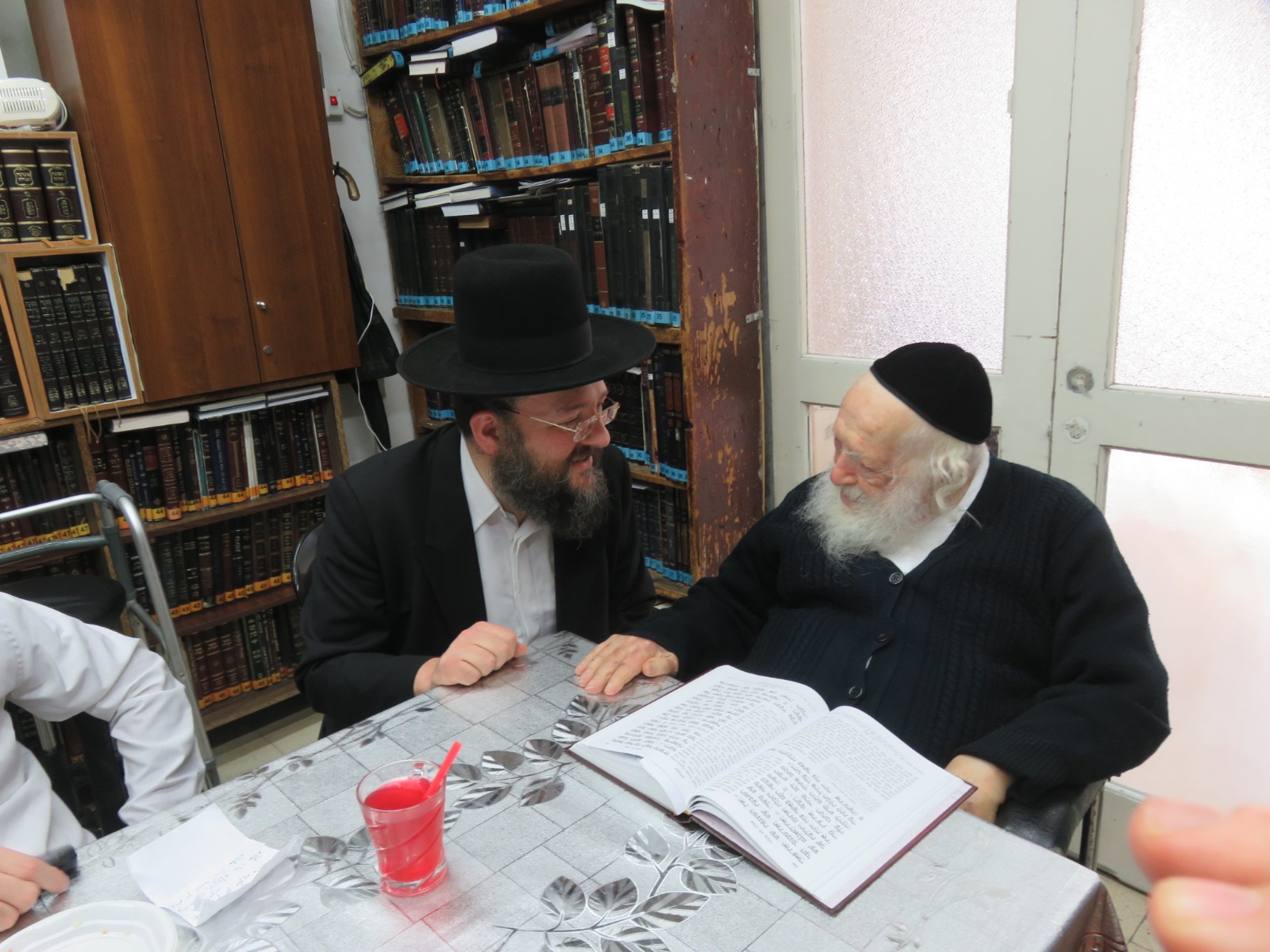
"Following in My Grandfather's Footsteps"
This year marks 55 years since the passing of Rabbi Aryeh Levin. His great-grandson, Rabbi Aryeh, never met him in person but encounters his influence at every life crossroads. "We grew up hearing these remarkable stories, and wherever I go, people have something to tell about him. My grandfather wasn't a man of himself or his family; he belonged to all of Israel."
"When people approach me in my role, it's not always convenient or possible, but I remind myself: 'Wait, I'm Aryeh Levin. Wouldn't my grandfather make the effort? That's what I'm tasked with now.' Beyond the honor of bearing his name, 'Aryeh Levin' is also a responsibility."
What are your duties?
"I'm committed to my mission here in Tel Aviv, stepping out of the comfort zone of my religious upbringing to be with the community every day, on Shabbat and holidays, for those who weren't raised with values and tradition – we're there for them."
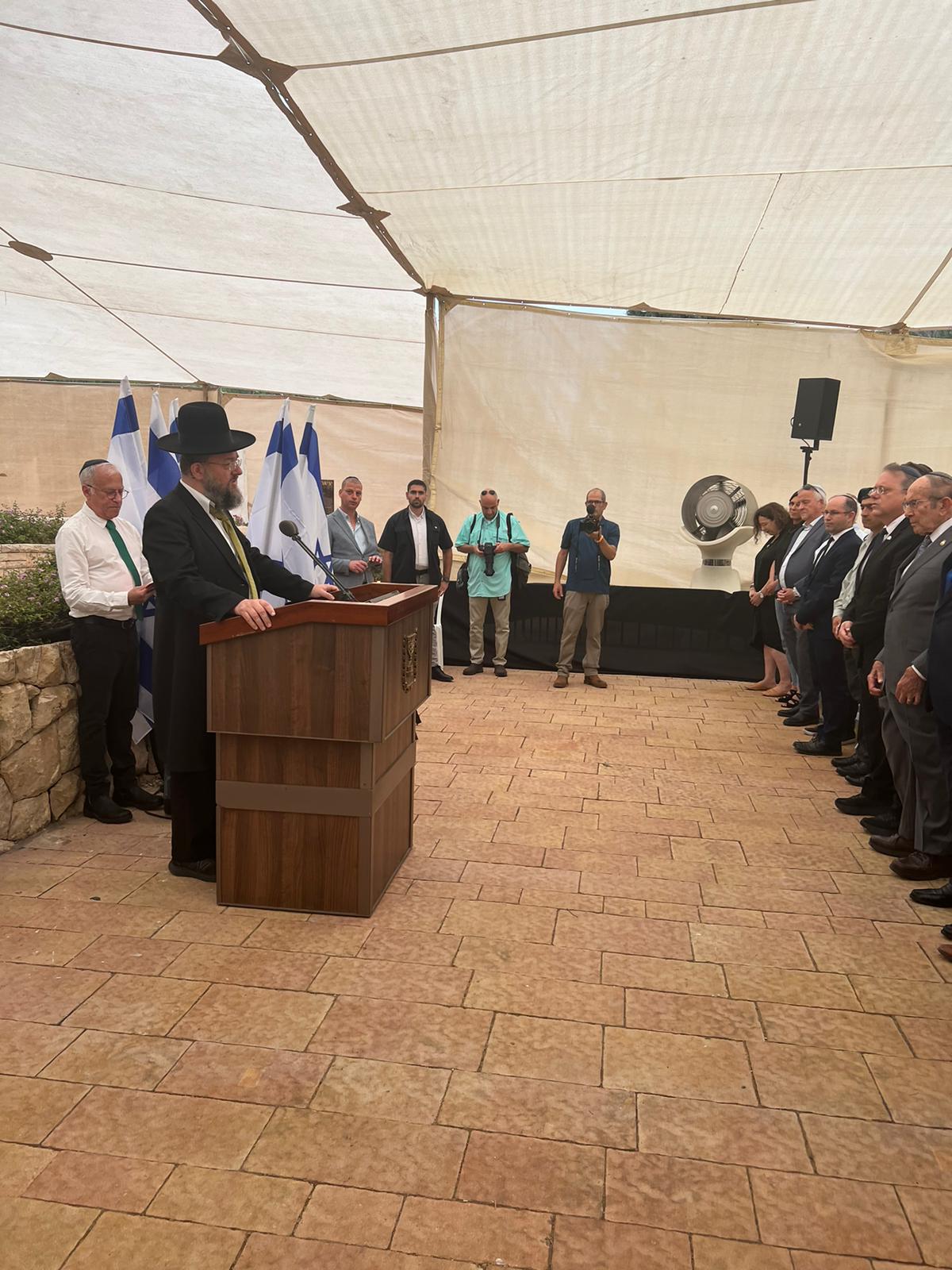
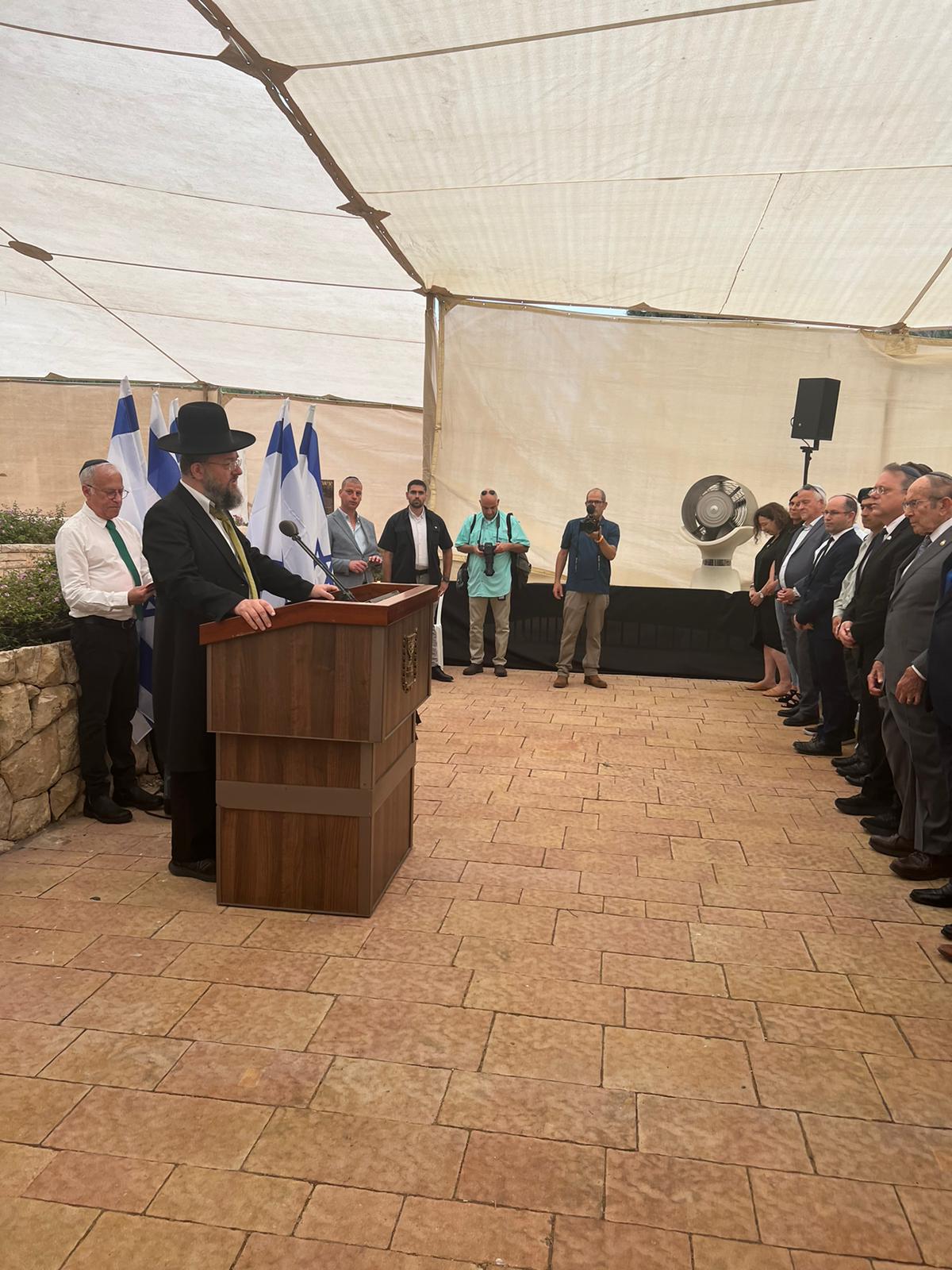
"Moments of Spiritual Unity"
In regular times, Rabbi Aryeh Levin serves as the rabbi of North Tel Aviv and as one of the spiritual leaders of the city center. During these wartime days, he serves in the reserves as an emergency rabbi for the Home Front Command. He also visits the Lebanese border to conduct weddings for soldiers mid-combat, supports wounded soldiers, celebrates bar mitzvahs with children in the conflict zone, and manages aid efforts for families evacuated from the south and north.
What's your military role?
"I'm responsible for ensuring all religious needs are met on the base to provide the best spiritual and kosher support for traditional and religious soldiers. I meet with our soldiers weekly, briefing hundreds entering the 104 Center to offer nationwide support. The soldiers' attentiveness is impressive. They want to listen, to know, all kindly."
"Take the base synagogue, for instance. You see soldiers of all backgrounds coming to pray and open their hearts during Mincha – not a one-off. Even at the crack of dawn, after nitz prayer, you see soldiers arriving to pray. It's an incredibly moving sight, truly special for Israel, offering a spiritual connection rarely seen in civilian life."
Do you feel this is what your grandfather would want from you in tough times?
"My grandfather would want us to selflessly serve the people of Israel, that's all. In any way I can sanctify Hashem's name, while adhering to halacha, I'm there if my duties enable us to do these things."
"We Must Stay Strong"
Rabbi Levin tells us that his great-grandfather's influence spanned multiple roles. Most notably, he was "the Prisoners' Father," caring for Jewish underground prisoners; he was a distinguished educator of Torah generations; and "the Jerusalem Tzadik," whom many sought for blessings and advice.
What drove him?
"It was his love for the Jewish people," his great-grandson says without hesitation. "That always guided him. Rabbi Aryeh loved every Jew immensely. I carry a remarkable story from years ago when, on Shabbat, my grandfather walked with someone holding a lit cigarette. One might ignore such a person, but my grandfather accompanied him. Eventually, impressed by my grandfather's patience, the man said, 'Rabbi, you have broken me. From now on, I will never smoke on Shabbat.' He later founded a large Torah family. That's the embodiment of loving Jews. If we think only of ourselves, we're not truly there."
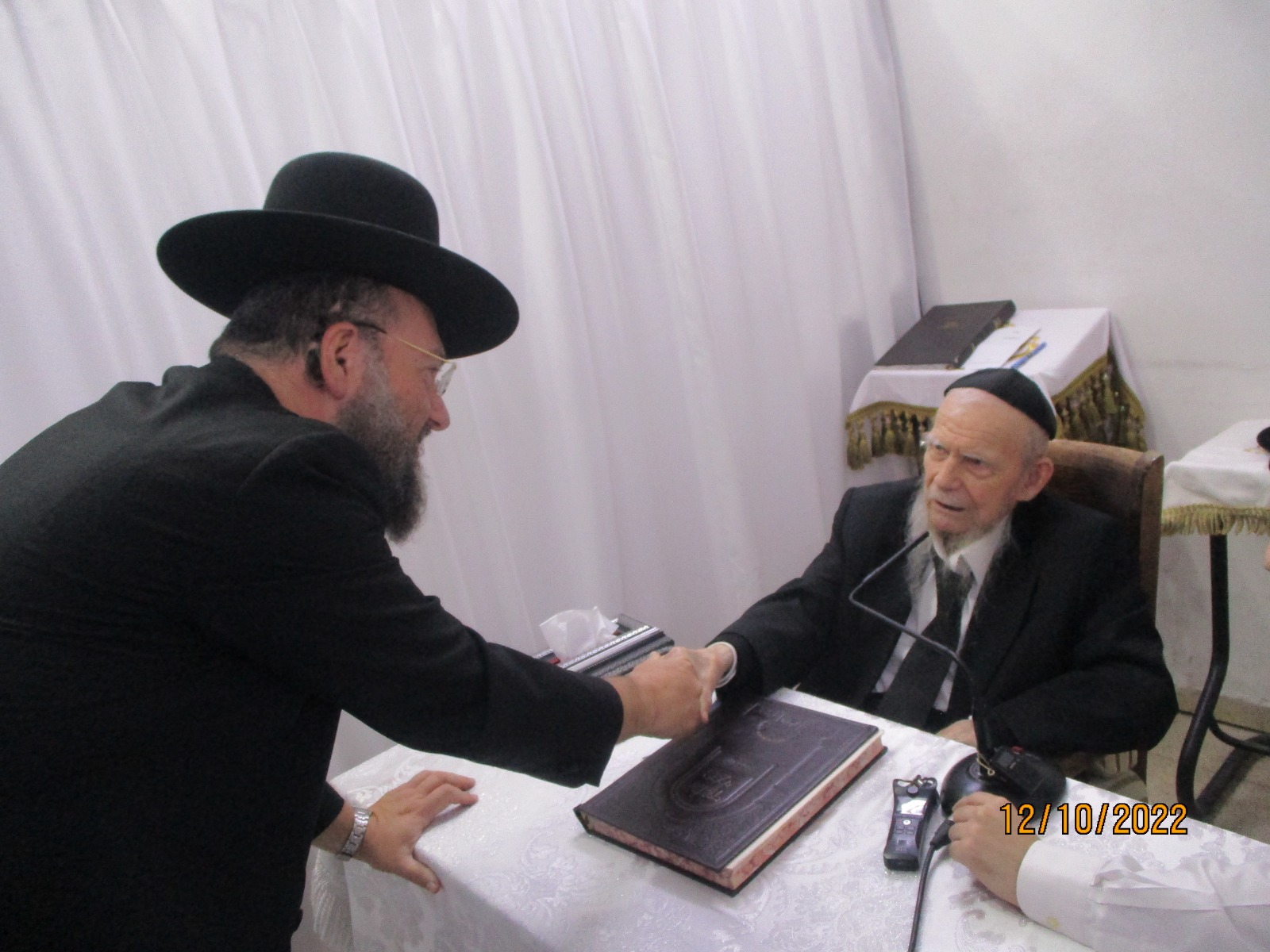
"Always seek the unifying factor, not what divides," says Rabbi Aryeh. "Look for the positive in others, and see the 'negative' only in yourself. We need Heaven's mercy because evil tries to incite division and hatred in every way. We must stay strong and fight it vigorously."

